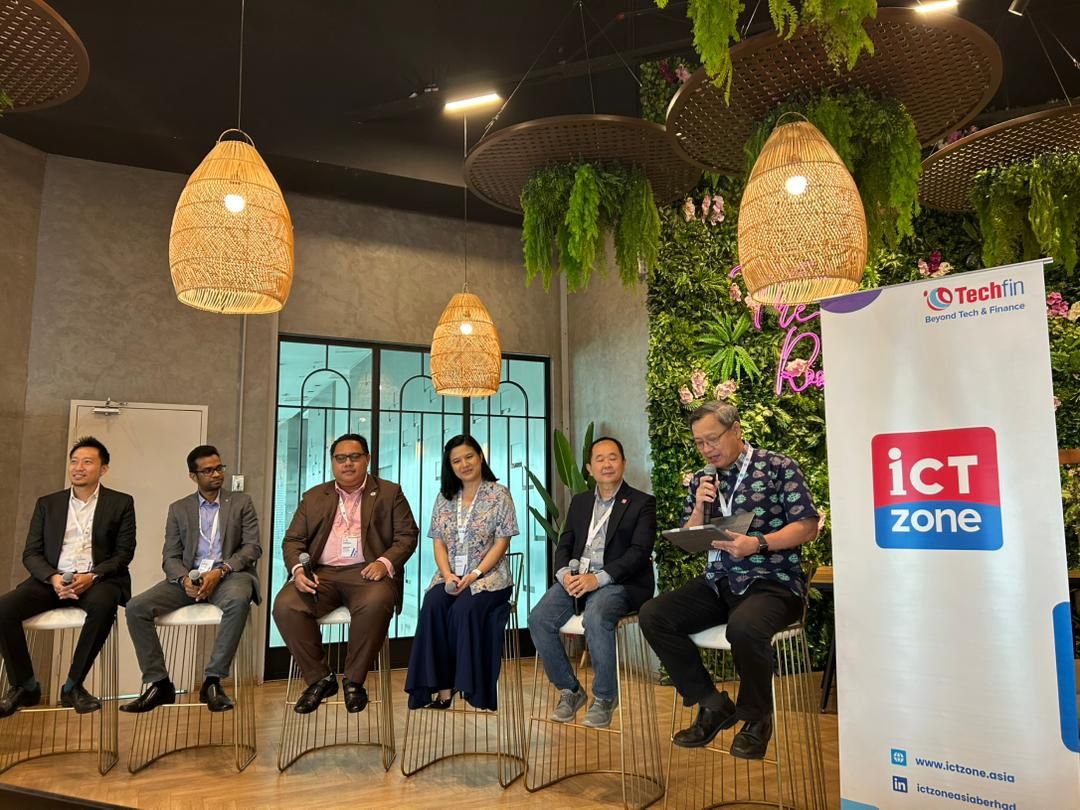KUALA LUMPUR, 7 August 2025 —Malaysian businesses are being encouraged to reconsider traditional ICT procurement methods and embrace carbon-neutral alternatives to achieve ambitious sustainability targets. This call to action emerged from key discussions at ESG Unplugged: C-Level Perspectives on Tech, Carbon & Change, a collaborative forum hosted by HP Malaysia and Bursa Malaysia ACE-Market listed ICT Zone Asia Berhad.
Held at The Roomah Restaurant, Solaris Dutamas, Kuala Lumpur, the event convened senior sustainability leaders from government, industry, and civil society to tackle pressing ESG issues. Discussions covered carbon pricing, circular procurement strategies, and compliance with emerging regulations such as the European Union’s Carbon Border Adjustment Mechanism (CBAM). The central takeaway from industry leaders: shifting towards leasing and subscription models for ICT assets significantly reduces carbon footprints, optimises capital efficiency, and enhances ESG reporting readiness.
“We don’t want our customers to own the devices and later struggle with planning, usage, or disposal,” said Tommy Lim, Chief Executive Officer and Managing Director of ICT Zone Asia Berhad. “Through a servitisation model, our Device-as-a-Service (DaaS) helps businesses reduce emissions, improve reporting readiness, and embrace circularity — all without upfront investment.”
ICT Zone Asia, certified by MyHIJAU, leads the market with its innovative Carbon-Neutral Computing Services (CNCS), offering businesses measurable impact through responsible reuse, refurbishment, and recycling of IT assets. This circular economy initiative, in partnership with HP, has enabled ICT Zone Asia to refurbish and redeploy thousands of devices, extending product lifespans by an average of 3-5 years and significantly curbing e-waste generation.
“This is no longer just a cost-saving conversation,” added Goh Soo Lin, HP’s Sustainable Impact Lead for SEA and ANZ. “It’s about rethinking procurement models to meet stakeholder expectations and sustainability targets.”
While listed companies are ramping up ESG reporting and third-party verification, small and medium enterprises (SMEs) may struggle to keep pace — especially as policies like CBAM gain traction.
“We understand that SMEs face limitations, and that’s why the Ministry is working on tools and frameworks to simplify ESG compliance,” said Muhammad Ridzwan Ali, Senior Assistant Secretary (Climate Change Policy and Negotiation), Ministry of Natural Resources and Environmental Sustainability (NRES).
“CBAM isn’t just a regulatory hurdle — it’s an opportunity for Malaysian exporters to lead.”
Muhammad Ridzwan also noted ongoing efforts to harmonise ESG policies, reduce duplication across agencies, and improve communication on available grants and support tools.
“The real risk is in the supply chain,” warned Adjunct Practice Professor Cheah Kok Hoong, President of the ESG Association of Malaysia and moderator of the forum. “If you’re a supplier and can’t report your emissions, you may lose your client.”
Panelists reinforced the importance of clear ESG metrics and reliable sustainability reporting tools. Platforms like HP’s Sustainability Benefit Report allow companies to track and demonstrate measurable environmental impacts clearly and credibly, meeting the expectations of regulators, investors, and customers.
The panel featured notable speakers which included Hiro Chai, Chief Executive Officer of Mitsusho Sdn Bhd, a Decarbonisation Clinic; Gary Dass, Chief Executive Officer of Tex Cycle Technology M Bhd, along with Cheah, Lim, Goh and Muhammad Ridzwan.

